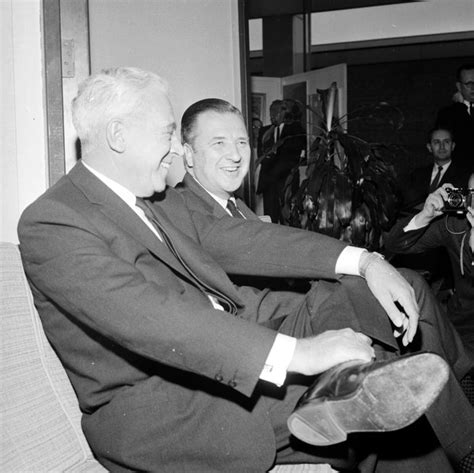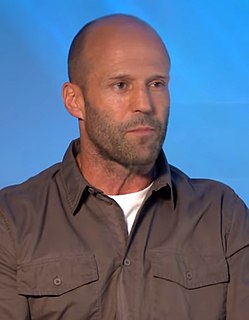A Quote by Tom Stoppard
You always end up with too much, so it's good to be part of the conversation about not just what you can omit, but how you are going to do the grammar of the omission, how you make things continue to work when there's something missing. It's your last chance to rewrite.
Related Quotes
How shall I sum up my life? I think I've been particularly lucky. Does that have something to do with faith also? I know my mother always used to say, 'Good things aren't supposed to just fall in your lap. God is very generous, but he expects you to do your part first.' So you have to make that effort. But at the end of a bad time or a huge effort, I've always had - how shall I say it? - the prize at the end. My whole life shows that.
There were guys in 'The State' who would take one script and rewrite it and rewrite it and rewrite it and fight for it for a whole season, and after a couple of seasons, you realized that doesn't work. You have to just be willing to throw something away, no matter how good it is, and write a better joke.
Okay, here is the uplifting part: Your life isn't and has never been about you....about what you accomplish, how successful you are or are not, how much money you make, what sort of position you ascend to,...or how much good you do for others or the world at large. Your life, like mine, and like everyone else's has always been about one thing: love.
I find that I end up liking songs if I really have an idea of something I wat to write about-some problem in my life or something I want to work through; if I don't have something like that at the root of the song, then I think I end up not caring about it as much. I gravitate towards some kind of concept or idea or situation that I want to write about. Very often I have to write, rewrite and come at it from an opposite angle...and I end up writing the opposite song that I thought I was going to write.
You can start over again! Don't even think about quitting now! It is easy to replay in your mind how things did not work, how much you lost, what you are going through, how angry you are. There is no amount of conversation or magic that is going to wipe the slate clean. You are wasting valuable time and energy that could be used to regain a new normal and start another version of your life. Even though you are hurt and you may be feeling down — stop kicking yourself! Face what has happened. Make the decision to start over again.
I started making work, and it's like, yes you are calling out all of these things that are part of your memory, your body's memory, things that have gone through your pores, what you've seen, what you've experienced, and you spill them out without thinking. I don't think so much about, "Okay, I'm going to make work, and it's going to be about this." It's just going to come out.
I try to not think too much about how stuff gets seen as it's being done by a woman. Because if you think about it, then you end up thinking about how you're acting, and if you are thinking about how you're acting, then you are preoccupied and you're going to end up being insincere. You're kind of not present.





































